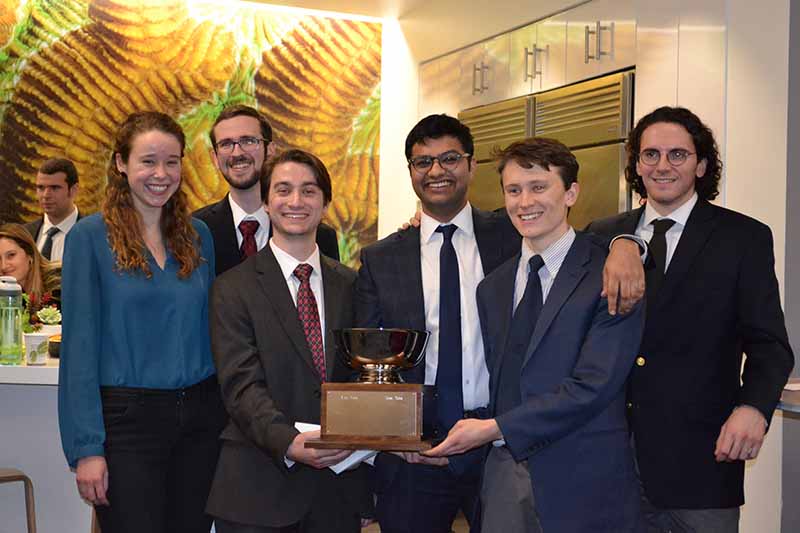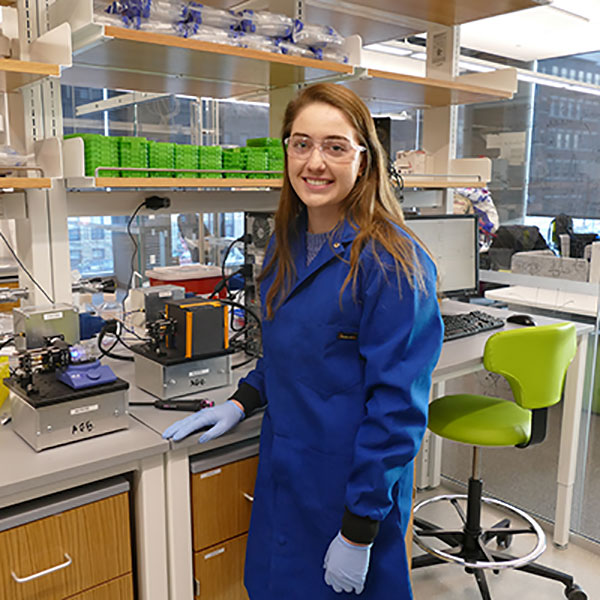Undergraduate Studies
A multidisciplinary approach that takes into account the mechanical, electrical, chemical, and materials properties of the biological system
The Department of Bioengineering offers students a broad education built on fundamentals in science, mathematics, and engineering, with a focus on the biological applications of engineering. The program is designed to provide a rigorous engineering training along with a comprehensive understanding of the biological constraints intrinsic to designing artificial systems to interface with, augment, replace, repair, or monitor living systems. These constraints depend on the properties of the biological system involved and the functionality that is being created.
The living system may be the human body; an ecosystem; or, more broadly, a bioreactor, tissue culture system, or any system with living components. The presence of naturally occurring biological tissue places special constraints on the design and implementation of artificial constructs and their interface to living systems. Bioengineers are engineers with comprehensive understanding of the engineering requirements intrinsic to working within a biological context.
Bioengineering is a relatively new field driven by the recognition that engineering of biological systems or systems that interface with living systems requires a multidisciplinary approach that takes into account the mechanical, electrical, chemical, and materials properties of the biological system. With that in mind, the bioengineering program has been designed to provide a rigorous engineering education that endows a broad understanding of the quantitative analysis of biological systems and a deep expertise in one of four areas of bioengineering.
Recent Recipients of Prestigious Awards
The curriculum is structured around a core of six courses that quantitatively analyze biological systems from multiple points of view. The core provides the fundamentals of quantitative physiology, electrical engineering in the context of excitable tissues; basics of mechanical engineering in the context of the musculoskeletal system; and thermodynamics, heat transfer, and fluids mechanics within the context of physiological systems.
On completion of the core, students choose one of four concentrations in which provides the opportunity to develop a deep level of expertise in an important academic and research area of bioengineering. View research areas:

Students from the first Bioengineering capstone design cohort showcase their winning project: The Microbescope, which is a low-cost, autonomous portable imaging platform that uses machine learning to detect microbes in drinking water.
The Department of Bioengineering has a 2 semester Capstone Design course sequence. Capstone Design 1 takes place during the Summer semesters and focuses on formalization of the design problem and the theoretical aspects of design. Students and faculty work closely together, with individualized guidance and frequent small-group meetings.
Capstone Design offers students an opportunity to apply design principles to create a device or process to solve a relevant bioengineering problem. Continuing with Capstone Design 2 in the Fall or Spring, teams develop, construct, and evaluate prototypes under real-world fiscal, regulatory, and safety conditions. Capstone Design Projects provide deliverables that emulate real engineering practice, with a series of oral presentations and a design history document that is reviewed throughout the course. Students’ efforts culminate in a working prototype, process, or simulation, supported by state-of-the-art facilities on campus.
Students joining the Bioengineering department will have unique opportunities in the classroom, research labs, and experiential learning, including cooperative education where they gain professional experience in areas of interest to them. The projects that they may be able to contribute to include bio-bandages that monitor bacterial growth or that help damaged ligaments heal faster; sheets of cells folded like origami to form a working kidney; and new materials that—like a leaf in the sun—automatically sense and adapt to changes in the environment.
More Information
Undergraduate education at Northeastern’s College of Engineering offers ongoing support and resources as well as innovative programs such as our world-renowned cooperative education program and opportunities for entrepreneurship and business.


